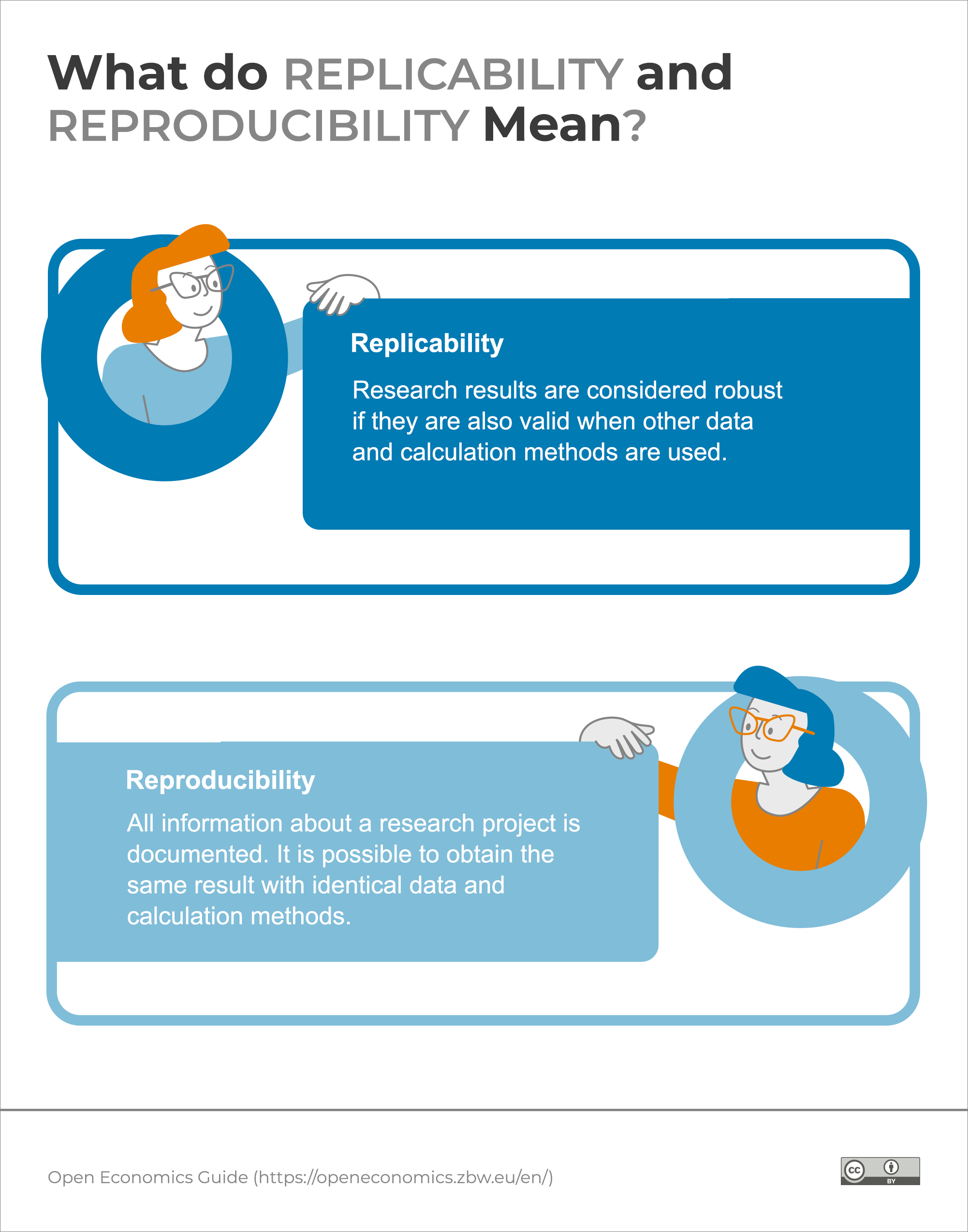Why Reproducibility and Replicability are Important
Reproducibility describes specifically the possibility of obtaining the same result with the identical data and calculation method. Put simply, you could say that research is either reproducible or not. Replicability or replications are a further term in which the robustness of research results is the central point of focus. That is, the question of whether they hold up under changed conditions. Either the same calculation methods are used on other data, the same data are analysed with different calculation methods, or both data and calculation methods are changed. Reproducibility is therefore very narrowly defined, whereas replications are more broadly defined.

One problem however is that a large percentage of the studies cannot be successfully reproduced or replicated. This is known as a replication crisis. It endangers public trust in research. This problem was initially a subject of discussion in the field of psychology and subsequently in many further disciplines. According to a survey of 1,500 researchers, which was published in the journal Nature in 2016, 70% of them have not been able to reproduce at least one experiment of another scientist. 50% of them were also not able to reproduce one of their own experiments. These figures naturally vary from discipline to discipline. It is important to bear in mind:
- If you are unable to replicate an experiment, it does not necessarily mean that the hypothesis or the original results are wrong; there can be other reasons.
- Lack of access to the fundamental raw research data and analysis scripts makes the replication of studies more difficult.
- The pre-registration of the experiment’s design reduces the risk of distortions and individual interpretations during the course of the data analysis.
The German Research Foundation (Deutsche Forschungsgemeinschaft/DFG) published a statement entitled “Replicability of research results”, on this topic in 2017. It discusses the fact that even the non-replicability of a result is a research result and not a general proof of falsification.
The reproducibility and/or replicability of research is therefore neither an end in itself nor a guarantee of quality. Research that is 100% reproducible can have a minimal intrinsic value. Reproducibility varies according to discipline and the methods used. Carrying out reproducible research means taking into account the exactness of the methods used and documenting all steps of the scientific process, to guarantee its transparency and replicability. If all information about a research project is accessible, it is fundamentally possible for others to reproduce the research results.
Replications are of central importance for the credibility of empirical economics. Only replicable and robust results can be generalised. And only generalisable results can serve as evidence-based advice for economic policy. And yet replication studies are rarely published in economic journals due to a lack of incentives. In the past, it was often difficult to get recognition for this work and thus to obtain publications in citable journals. There are now a number of approaches that address this problem.
Over the course of their research careers, many economists carry out a reproduction or replication at different points anyway. This occurs if they want to pursue a similar direction in their own research, for example, and reproduce an already known method. These reproductions or replications could also be published, without incurring major additional expense. The economist Lars Vilhuber explores the significance of reproductions or replications in the field of economics in his article Reproducibility and Replicability in Economics.
Replication studies can be published in the:
The Replication Network – Furthering the Practice of Replication in Economics and the German Reproducibility Network (GRN) are networks that promote the reproducibility and/or replicability of research. The Replication Network – Furthering the Practice of Replication in Economics aims to promote replications in the field of economics; many economists worldwide are already registered with it. The German Reproducibility Network (GRN) is an interdisciplinary consortium that aims to raise the trustworthiness and transparency of scientific research. To do this it examines and promotes the factors that contribute to reliable research with training activities and the dissemination of best practices.